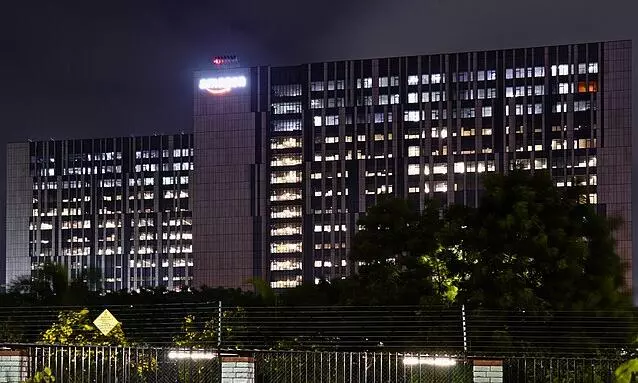
Experts say that there is a sense of urgency in shifting work to India amid the uncertainty caused by the recent changes in visa policy by the Trump administration. Representative image: courtesy Wikimedia Commons
Why US visa curbs may push US firms to shift more work to Indian GCCs
Industry experts feel more high-end work like AI and cybersecurity could be outsourced to India as US firms rethink labour strategy amid the Trump administration's policy changes

Global Capability Centres (GCCs) in India may see more critical work being outsourced to them by American companies as a result of US President Donald Trump’s policy of drastically increasing H-1B visa fees, according to industry experts.
US firms are rethinking their labour strategies to tackle the latest challenge in hiring Indian professionals for their operations in America by opting to shift more work to GCCs in India that have become resilient centres combining strong leadership at the local level with global skills, according to a report by Reuters.
‘Ready in-house engine’
GCC industry leader and partner at Deloitte India, Rohan Lobo, said the GCCs are uniquely positioned for this moment and that they serve as a “ready in-house engine”. He said he knew of several US firms reassessing their workforce needs and already planning for such a shift.
Lobo pointed out greater activity in sectors such as financial services and tech, especially among companies that have US federal contracts. He said he expects GCCs to take on more strategic, innovation-led work in the future.
Industry experts feel that US firms will transfer high-end work related to cybersecurity, artificial intelligence, analytics, and product development to their GCCs in India.
They say that there is a sense of urgency in shifting work to India amid the uncertainty caused by the recent changes in visa policy by the Trump administration.
Also Read: What India can learn from China to retain talent or reverse brain drain
‘Extreme offshoring’
Ramkumar Ramamoorthy, a former managing director of Cognizant India, said such a rush could lead to what he called “extreme offshoring” in some cases, observing how the COVID-19 pandemic had shown that key tech tasks could be done from anywhere.
The India head of a retail GCC said either more work would move to India or to places closer to the US like Mexico, Colombia, and maybe even Canada.
Most technology majors like Alphabet, Amazon, Apple, and Microsoft and other US multinationals like Walmart and JP Morgan Chase were among the top sponsors of H-1B visas, according to US government data. All these firms have major operations in India, but are keeping a low profile on the visa issue as it is politically sensitive.
Also Read: India’s startup moment is now: Kumar Vembu on innovation and brain drain
‘Wait and watch’
Some US firms are adopting a “wait and watch” approach, since they could face a 25 per cent tax for outsourcing work overseas if the proposed Hire Act is passed by the Trump administration. This could lead to major disruption in India’s export of services.
The India head of a US pharmaceutical GCC said they are “observing and studying, and being ready for outcomes”.
The trade tension between India and the US, initially limited to goods, has now affected the services industry also, with the curbs on visas and the threat of the Hire Act that could reduce India’s services exports.
The blow to India’s services exports could be offset to some extent if US firms outsource more work to India’s GCCs.
Also Read: India to urge US to ease H-1B visa curbs during trade talks: Report
India’s GCCs
India currently is home to more than 1,700 Global Capability Centres, more than half the total number of GCCs in the world.
They handle operations ranging from research and development to finance, having moved from their tech-support origins to evolve into a hub of high-value innovation in areas like drug discovery, design of automobile dashboards, and growing adoption of AI.
Experts are predicting that India will have more than 2,200 GCCs by 2030, with a market size of nearly $100 billion.

